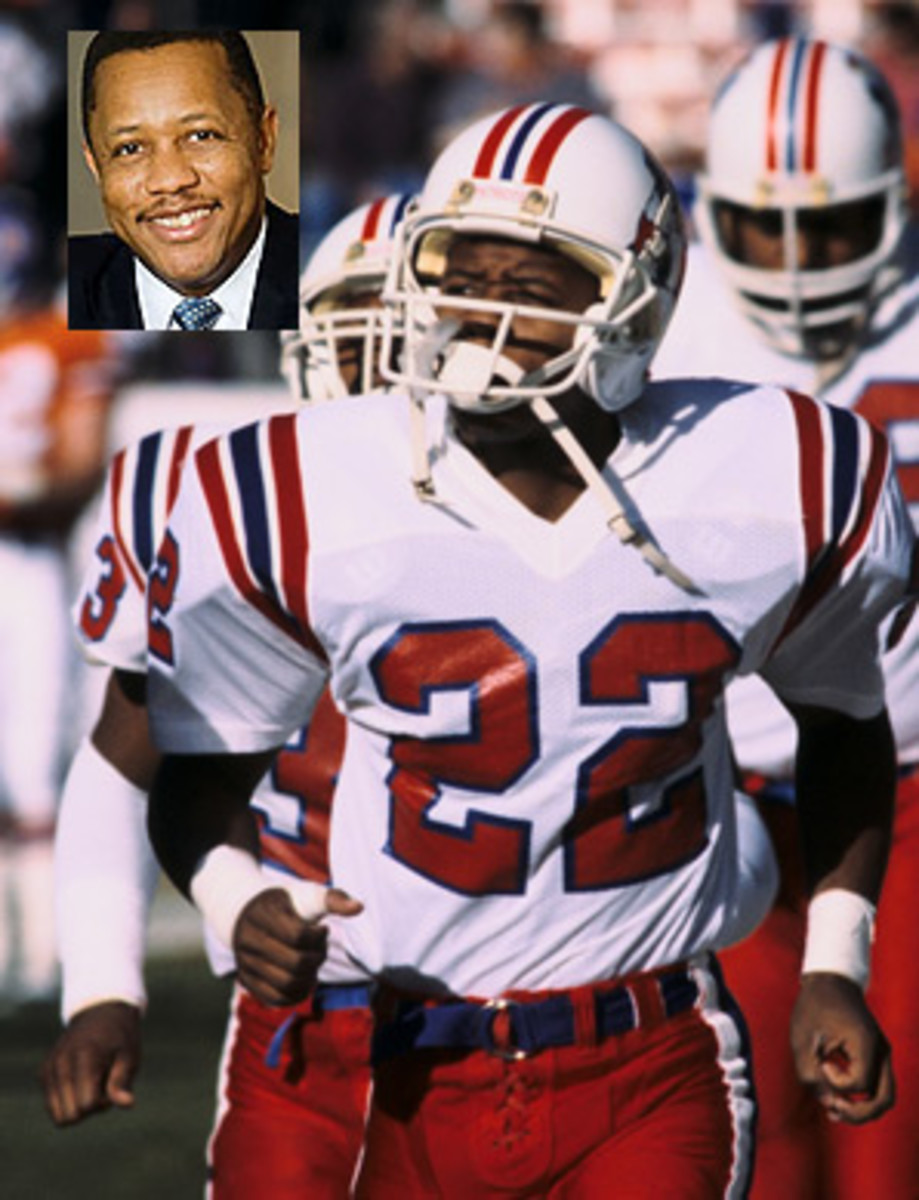Playing for Profit: Ex-NFL corner succeeds in business after football
In 1991, his final year in the NFL, Redskins cornerback Eugene Profit was posed a question by his position coach, Emmitt Thomas.
"Are you going into coaching or are you going to Wall Street?" Thomas asked.
This wasn't a question heard every day in the NFL, but Profit had always been unique to his profession. He attended Yale, majored in economics and wrote his final thesis on corporate strategy and economic analysis. He was as enthusiastic about the banking system as he was about bump-and-run coverage.
"I decided to study economics at Yale because it was the closest thing to a real world, job-creation major," Profit says. "I became fascinated with the study of money and capital flows."
But coaching had its own appeal, too, especially for an intellectual defensive player who contributed on special teams. Profit pondered the question and decided on the road less traveled.
"I have a passion for both, but I've decided to go to Wall Street,'" Profit told Thomas. His would be the path of titans like Warren Buffet and Bill Miller.
In an era when stories of the financial struggles of many retired professional athletes have become rote, the 46-year-old Profit presents a striking alternative. Since embarking on a business career after a torn hamstring forced him out of football in 1991, Profit has thrived in the world of money management, building Profit Investment Management from $100,000 at its creation in 1996 to $2 billion in assets under management today. For Profit's business acumen, the Reginald F. Lewis Foundation will honor him June 25 at a gala luncheon in East Hampton, N.Y. (The foundation is named after the late businessman who became the first African American to build a billion-dollar company).
Profit's biography -- from South Central Los Angeles to the Ivy League to the NFL to president, CEO and portfolio manager of his own firm -- gives him a rare and unique perspective. It is an insight that is especially timely during an NFL lockout that has forced players to reevaluate how they spend and save their money.
"We're not all millionaires," Giants defensive tackle Barry Cofield said recently. "[The owners] are pretty well off, but we're all not millionaires."
Last December, the NFL Players Association sent a letter advising players to save their last three game checks of the season because of the uncertainty about a 2011 season. It was sound advice. Still, in many cases the financial woes of professional athletes stem from poor choices made early in their careers. It often boils down to discipline.
"My perspective on financial mismanagement is that you have players who are 18 to 21 years old and they don't have the experience to handle the amount of money they are suddenly endowed with," Profit says. "Naturally, they want to go out and do the one thing they always dreamed about. 'I need to buy that house on the hill or that Mercedes.' Unless you get them through that first three-year contract, it's a difficult thing. And it's not just players. The same applies to [young] attorneys and physicians. The players are just the most visible."
Profit, who was part of the 1987 NFL strike as a player, looks at the current lockout as "teetering in a dangerous space," in terms of the affect on fans and local economies.
"I remember thinking [in 1987] that it didn't make that much sense to be out on strike when it could have been handled through the courts," Profit says. "I think, to some extent, the players [in 2011] have a good strategy. I also certainly understand the business side of [owners] wanting to control labor costs. But what's missing is the fans' frustration or the bars and restaurants that will lose money. When you only look at it as millionaires versus billionaires, those other issues get lost."
Profit is still passionate about football, but his energies are directed elsewhere. His days are spent managing portfolios and searching for growth companies that are down in price for a certain reason. ("The last question I always ask is, 'Does the investment make sense?'" Profit says.) He is an occasional guest on CNN and CNBC, discussing everything from large cap growth funds to automotive stocks.
Profit laughed when asked about how he learned he was being honored by the Reginald F. Lewis Foundation. He was on a plane heading to a celebrity golf tournament and was seated next to former Chicago Bears defensive end Richard Dent, who is part of the 2011 class of Pro Football's Hall of Fame inductees. Before the flight took off, Profit's phone rang with news that he had been chosen by the Lewis Foundation.
"I was thinking, "Well, I didn't make the Pro Football Hall of Fame, but I made this Hall of Fame," he says.
Profit proves that success for former athletes comes in many forms.






